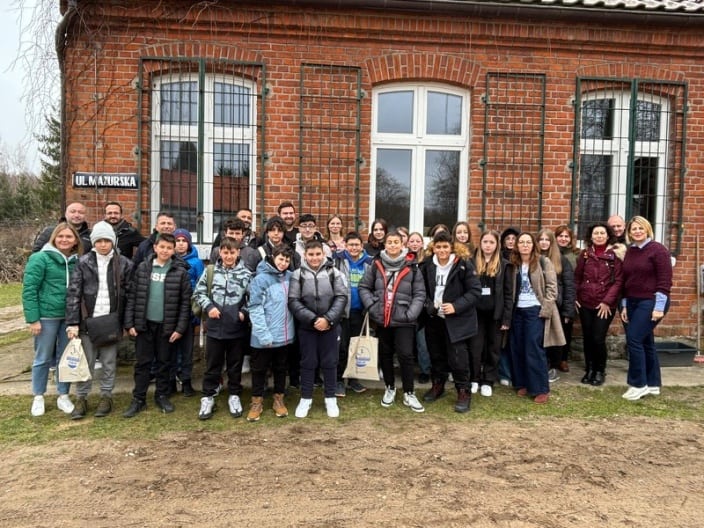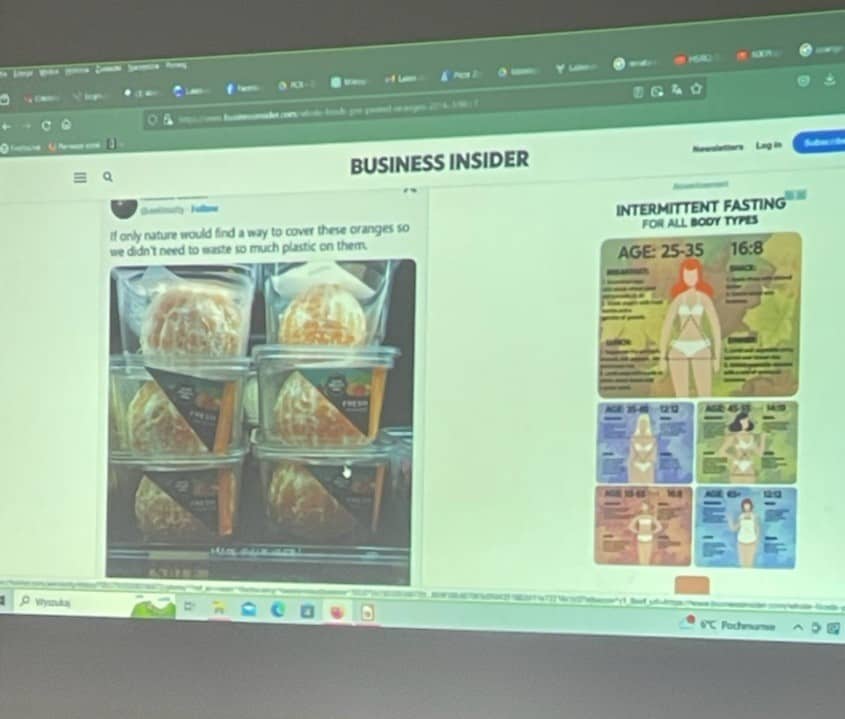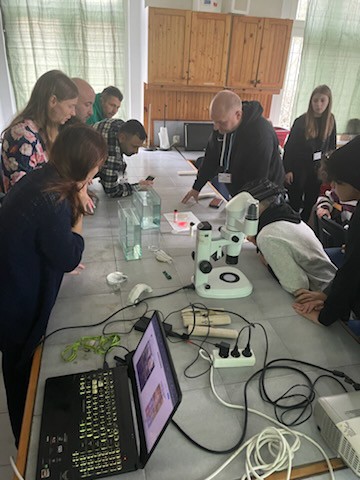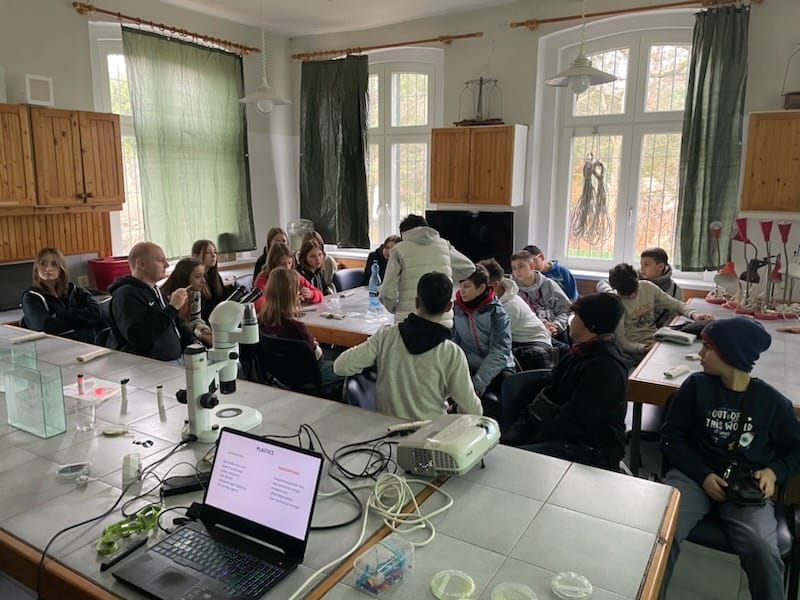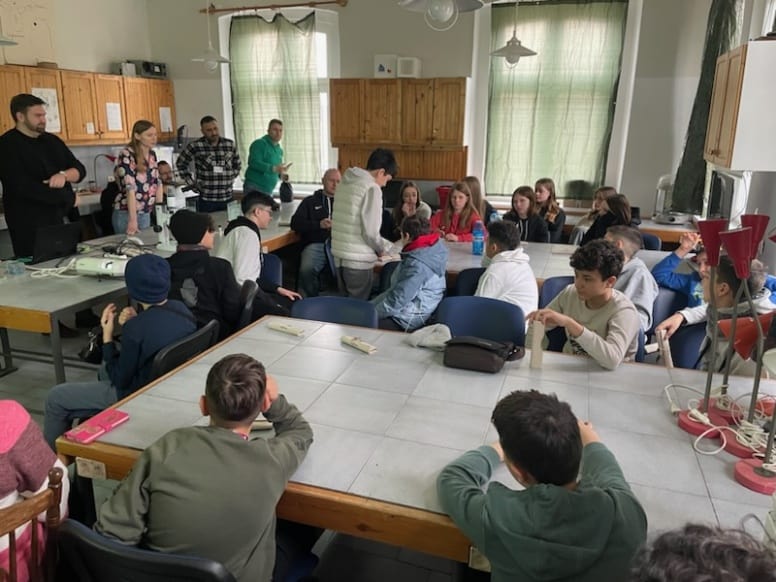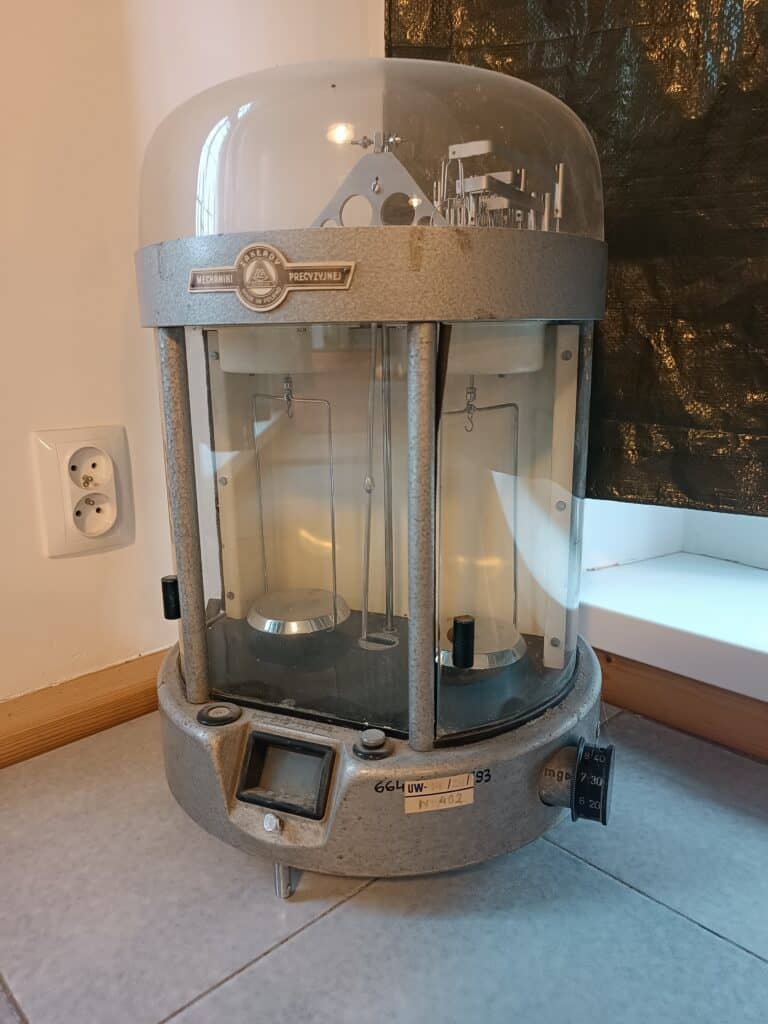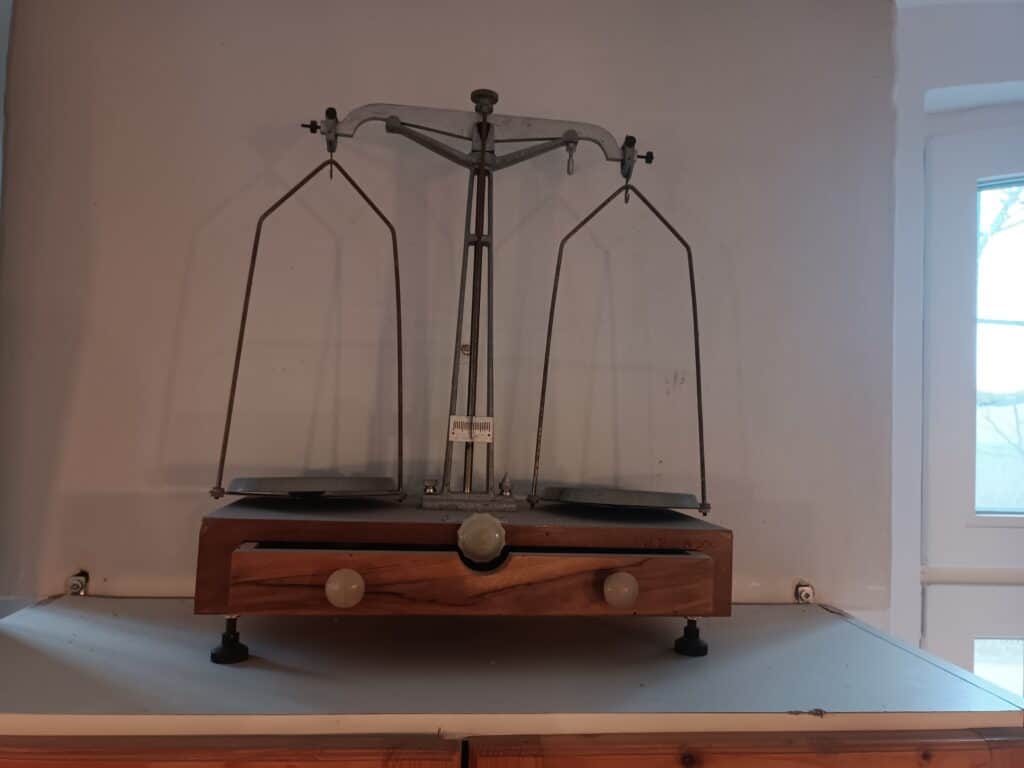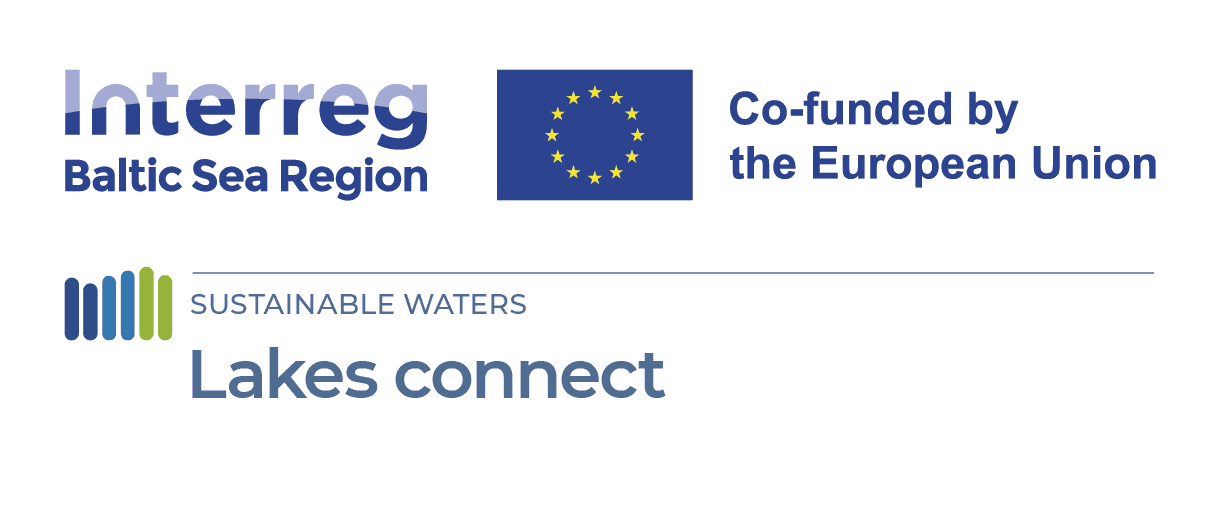
Building networking hub for units interested in lakes protection in Baltic Sea tourist regions
Lakes connect
In the plastic world... Educational activities for youth as part of Lakes Connect
21 March 2024
On March 20th, at the Hydrobiological Station of the University of Warsaw in Pilchy, educational activities took place concerning microplastic particles circulating in the environment and in our bodies.
Photo: A group in front of the building of the Hydrobiological Station of the University of Warsaw in Pilchy, where educational activities on microplastic particles and their impact on the environment took place
Among the topics discussed were alarming headlines from media reports, a video depicting mass production of plastics that find their way into the environment through various means, and a discussion on the ways microplastics spread in soil, water, and air.
Photo: Slide illustrating the negative effects of mass plastic production and the absurd use of this material (link: https://www.cbsnews.com/news/whole-foods-responds-to-6-pre-peeled-orange-twitterstorm/
There was also time for reflection on the plastic world around us:
How many plastic items we encounter daily? How many plastic bags we bring home from shopping, and whether we know alternative materials for at least 3 plastic items we use daily?
The entire workshop took place in the laboratory of the Station, where equipment contained less plastic than their modern counterparts.
This leaves much to ponder, urging us to reflect on our daily lives and search for alternative solutions…
Photos: Antique balances located in the laboratory at the Hydrobiological Station of the University of Warsaw in Pilchy





